Three recent graduates are among those honored for distinguished journalism in the 2024 Pulitzer Prizes, Columbia University announced May 6.
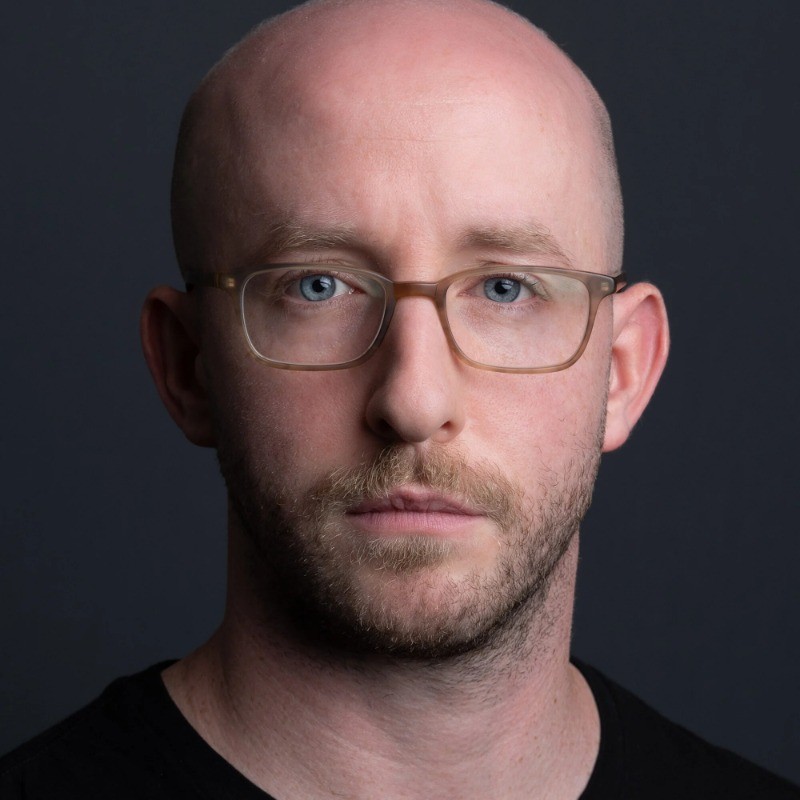
Brett Murphy
Following a string of high honors from the nation’s top investigative reporting competitions, alum Brett Murphy (’16), a reporter on ProPublica’s national desk, won the 2023 Pulitzer Prize for Public Service. Judges noted the ProPublica team’s “Groundbreaking and ambitious reporting that pierced the thick wall of secrecy surrounding the Supreme Court to reveal how a small group of politically influential billionaires wooed justices with lavish gifts and travel, pushing the Court to adopt its first code of conduct.”
In recognition, ProPublica will be presented with the iconic Pulitzer Prize Gold Medal, awarded each year to the American news organization that wins in the Public Service category.
“This is a tremendous honor and I’m so happy I was able to be a part of the team,” Murphy said. “I’ve long admired ProPublica’s Pulitzer-winning projects, so it’s a career highlight to have played a small part in this one. I hope the recognition brings even more attention to the issues we uncovered last year.”
Murphy reached out to his alma mater to hire two Investigative Reporting Program (IRP) students Kathleen Quinn (’24) and Marissa Muller (’24) to do Bay Area-based research for the project. ProPublica’s Managing Editor Tracy Weber (’89) was an editor on the series.
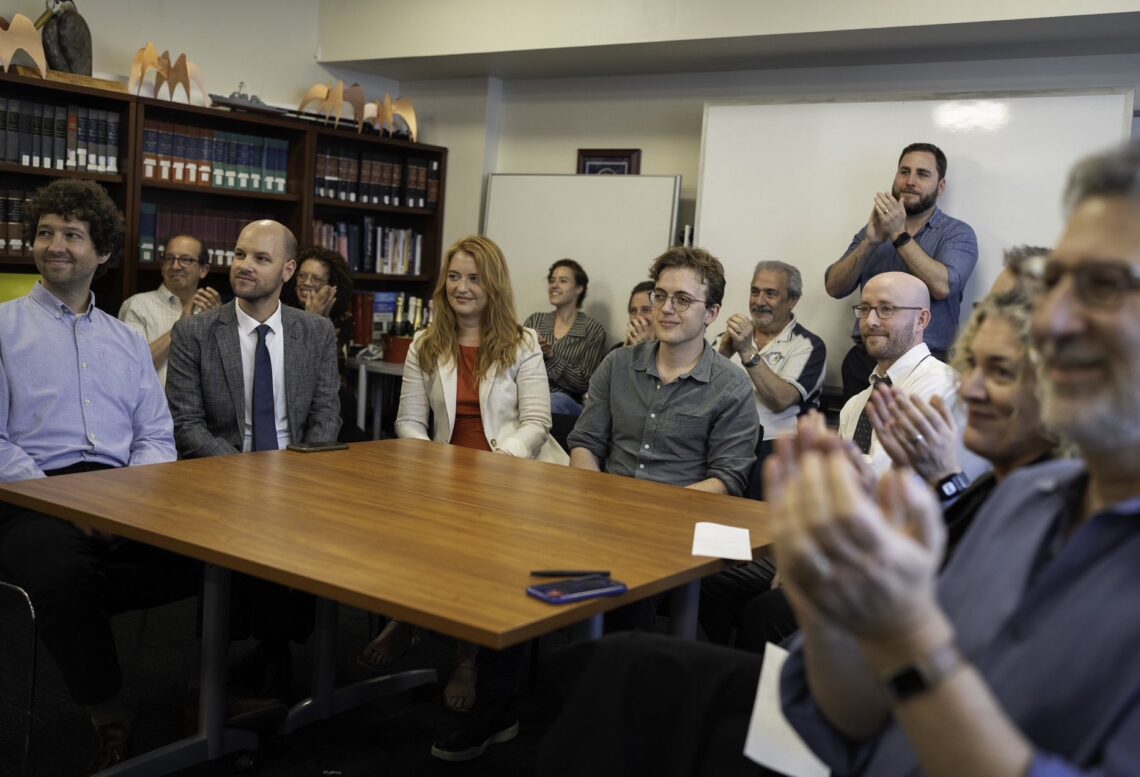
ProPublica reporters, seated from left, Alex Mierjeski, Justin Elliott, Kirsten Berg, Joshua Kaplan and Brett Murphy and Managing Editor Tracy Weber celebrate with staff after receiving the Pulitzer Prize for Public Service. Credit: Sarahbeth Maney/ProPublica
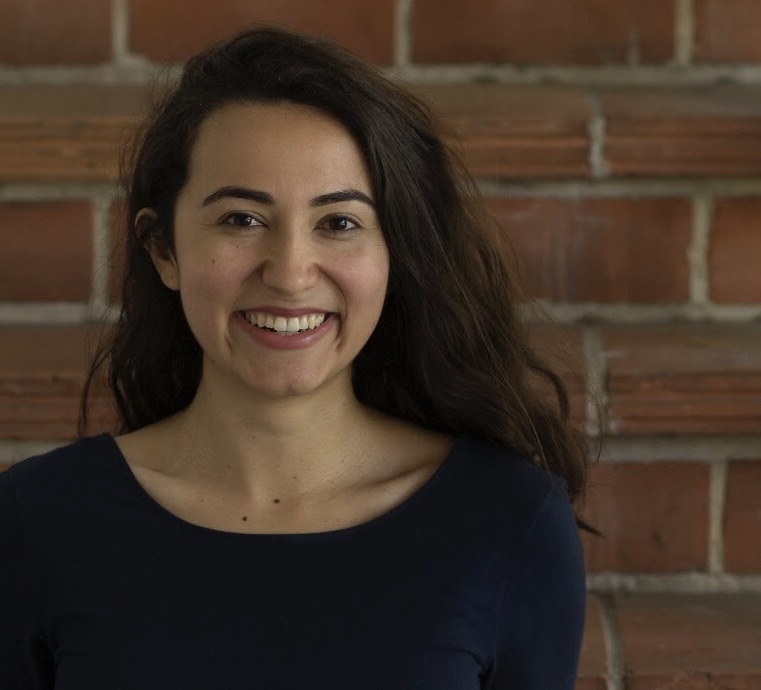
Sarah Cahlan
Sarah Cahlan (’19) is part of the staff of The Washington Post that won the Pulitzer Prize for National Reporting for a series of stories about the AR-15, the rifle most commonly used in the nation’s deadliest mass shootings. “Could fresh reporting and new approaches to storytelling compel readers — of all ideologies — to confront the causes and consequences of gun violence directly, in a way they haven’t before?” asked Washington Post editors, in writing about the AR-15 series called “American Icon.”
The judges honored the “sobering examination of the AR-15 semi-automatic rifle, which forced readers to reckon with the horrors wrought by the weapon.”
John Harden, who taught data journalism at Berkeley Journalism this semester, also contributed to The Washington Post’s AR-15 stories and shares in the Pulitzer honor.
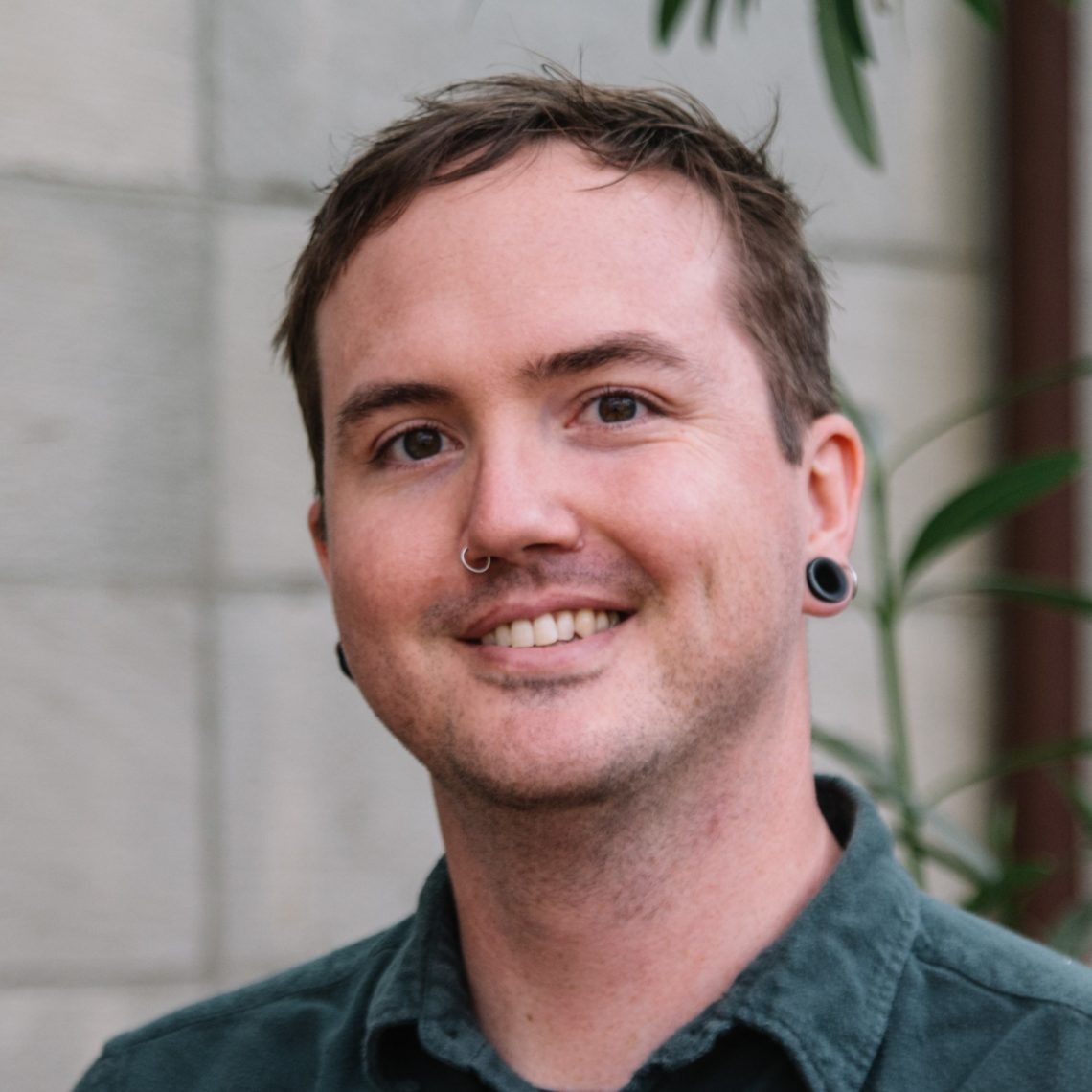
Brian Howey. Photo by Clara Mokri (’21).
Brian Howey (’22) of Mississippi Today and The New York Times was named a Pulitzer Prize finalist for Local Reporting for his detailed examination of corruption and abuse, including the torturing of suspects, by Mississippi sheriffs and their officers over two decades.
“I joined the Mississippi Center for Investigative Reporting intending to work a three-month gig probing a troubled sheriff’s office,” Howey said, describing what has been one of the most formative experiences of his career. “A year later, we’re still not done investigating in Rankin County. We have altered the trajectory of several counties, changed state law, and developed a profound respect for the people of Mississippi who fight every day to make the state’s powerbrokers live up to their promises.”
“It’s an unbelievable honor to be recognized by the Pulitzer board,” Howey said. “I’ve been overwhelmed with joy this week to know that our reporting, which has made such a profound impact on us and the residents of Mississippi these past months, has also made such an impression on the nation and the discerning Pulitzer judges. My deepest gratitude to them, our crack editors at Mississippi Today and The New York Times, the data wizards at Big Local News, and to my friends and colleagues Jerry Mitchell, Nate Rosenfield and Ilyssa Daly.”

Brian Howey watching the Pulitzer Prize announcements at Mississippi Today.
Most importantly, Howey said, “we never could have achieved this honor — or even done this reporting — without the help of those who trusted us with the telling of their horrific experiences. We are all indebted to them for risking their safety, reputations, and freedom in order to share their stories with us. Any recognition we receive for this work has been earned by the grace of their bravery. With all of my heart, thank you, all of you.”
Professor David Barstow, director of the Investigative Reporting Program (IRP) at Berkeley Journalism and a four-time Pulitzer Prize winner, celebrated the achievements of former IRP and Berkeley Journalism students.
“One of the things we love most is when we are able to connect our fabulous students and recent grads to find opportunities for meaningful investigative reporting at places like ProPublica and Mississippi Today,” Barstow said.
Howey, who was a student of Barstow’s as part of Berkeley Journalism’s Investigative Reporting Program, is an award-winning investigative reporter at the Mississippi Center of Investigative Reporting at Mississippi Today and a 2024/205 New York Times Local Investigative Reporting Fellow. His stories have appeared in The New York Times, The Washington Post, the Los Angeles Times and WIRED magazine. Howey was a student in Berkeley Journalism’s Investigative Reporting program.
Before joining ProPublica from USA Today’s investigations desk, where Brett Murphy covered labor, criminal justice and the federal government, he covered courts and hurricanes for the Naples Daily News and other Gannett newspapers. He has also taught reporting at George Washington University.
While at Berkeley Journalism, Murphy was awarded a Mark Felt Scholarship to pursue investigative stories while working under the Investigative Reporting Program’s faculty.
Sarah Cahlan is a video reporter and one of the founding members of the Visual Forensics team at The Washington Post. Her work combines open source and forensic technologies with traditional journalism and documentary filmmaking. She shared in a Pulitzer Prize for her reporting on the January 6 insurrection in 2022 and a 2021 Alfred I. Dupont Award for her coverage of the clearing of Lafayette Square. She started VF in 2020 after a year on the Fact Checker desk. Before coming to The Post, she directed the student BAFTA shortlisted short documentary “TheirStory” about the historical inaccuracies of gender roles. As an NBC/NAHJ fellow, she reported, produced and wrote stories about science, tech and Latino culture.
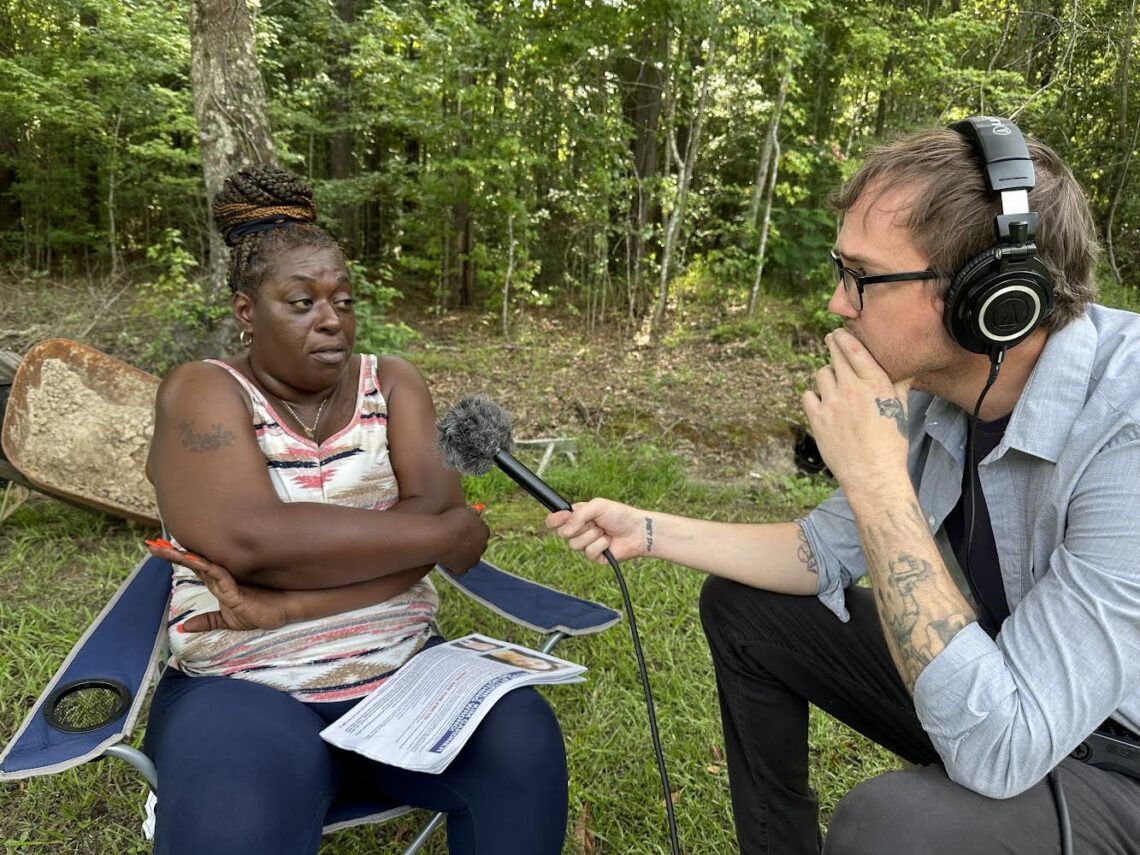
Brian Howey interviewing Monica Lee, the mother of Damien Cameron, who was killed by Rankin County deputies, for one of the stories in the series.
By Marlena Telvick
Dean's Newsletter

March 27, 2024
Quarterly Newsletter From Dean Geeta Anand
Spring 2024 Dear Berkeley Journalism community: With great optimism about the future of our school, I share with you news of the largest gift in the history of Berkeley Journalism:…

Quarterly Newsletter from Dean Geeta Anand
June 15, 2023

Quarterly Newsletter From Dean Geeta Anand
November 30, 2022
